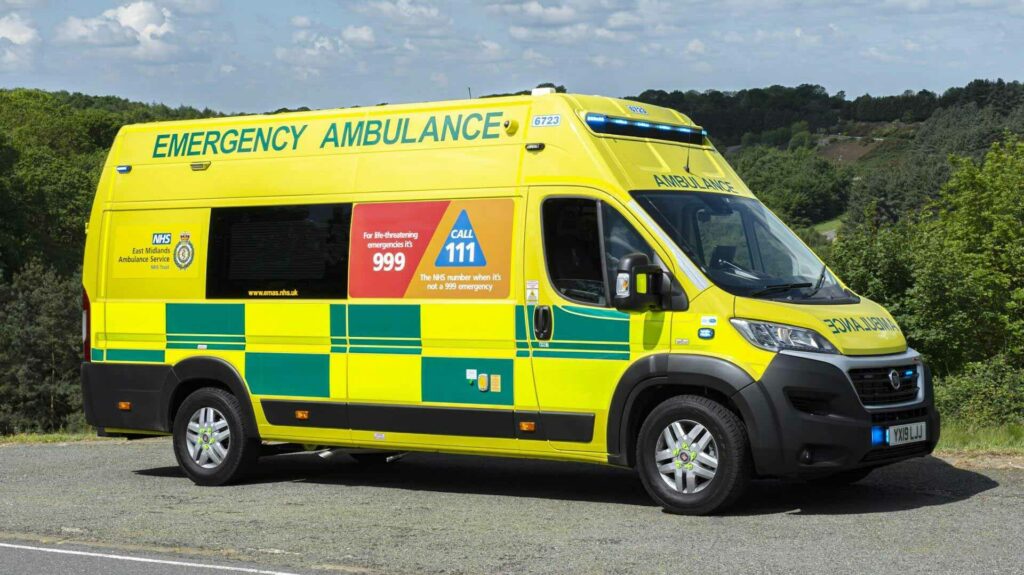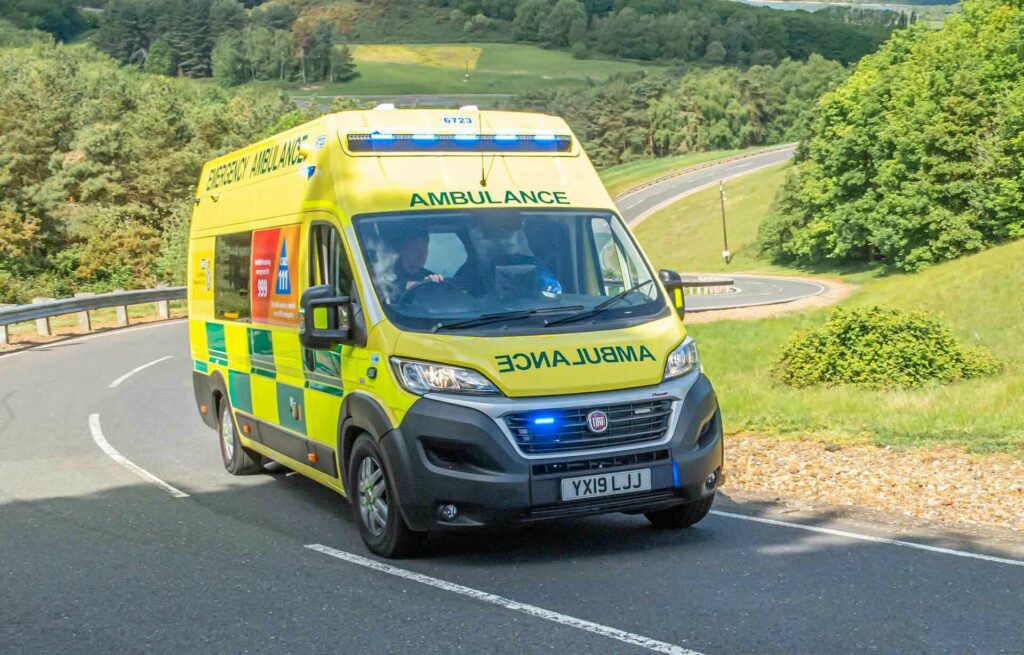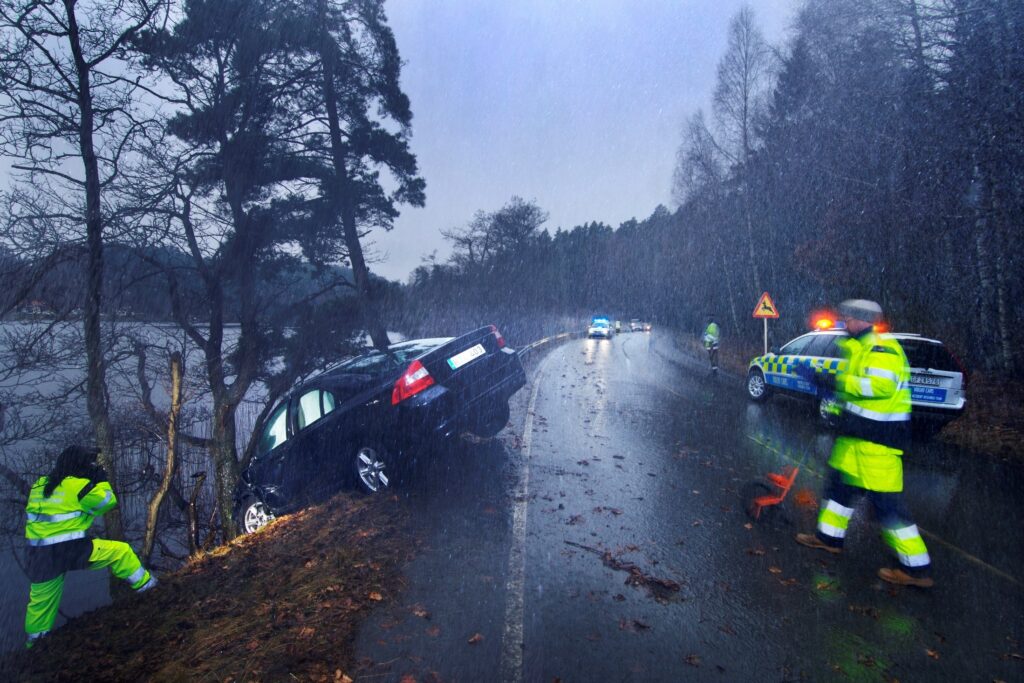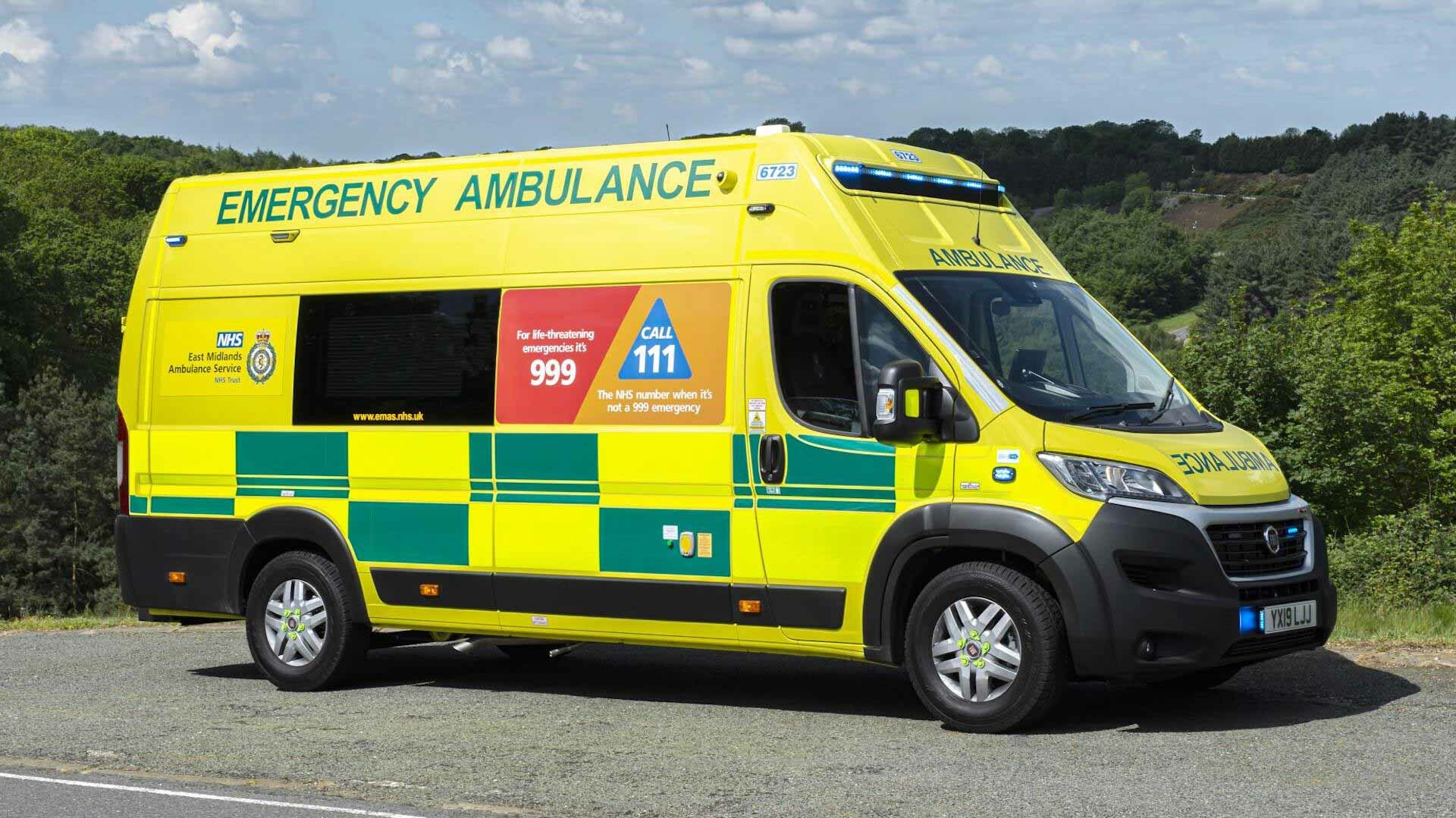Health minister suggests drivers avoid “unnecessary” car journeys and urged caution over contact sports
17 hours ago

by Chris Chilton
People living in the UK were warned to avoid “unnecessary” car journeys today because an ambulance service strike would likely result in long waits to be transported to hospital if they were involved in an accident.
Health minister Will Quince told the BBC that the British public should try not to engage in “risky activity,” which he later explained during a different BBC interview could include driving and playing sports.
“If there is activity that people are undertaking [on December 21], whether it’s, for example, contact sport, they may want to review that,” Quince told BBC Radio 5 Live.
When asked if people should drive, the health minister replied: “If there are unnecessary journeys I would say, don’t. No.”
Related: 46-Year-Old Arrested After Stealing Ambulance, Leading Police On 80-Mile Chase

Paramedics, control room staff and support workers from the three main ambulance unions – Unison, GMB and Unite – are taking part in their first ever strike on December 21 over pay. The striking workers want above-inflation pay rises, but the UK government says pay rises for ambulance workers and nurses (who went on strike on December 20) were decided by independent pay review bodies. The sticking point is that independent pay recommendation was set before inflation went stratospheric.
advertisement scroll to continue
Life-threatening category one calls to the UK’s 999 emergency phone line, including heart attacks were still being dealt with by ambulance crews today, but category two calls, which are serious but not life-threatening, including strokes, might not be immediately attended to by emergency teams. As for category 3 calls, such as women in late-stage labor, well, you’ve got the Uber app on your phone, right?
Around 600 members of the armed forces have been drafted in to provide additional ambulance support, while a further 150 were brought in to offer logistical assistance during the strike, which will be repeated on December 28 unless a deal can be reached before then. Crucially, military drivers won’t be allowed to steam through red lights, break the speed limit or use their blue lights.


buy stromectol canada – carbamazepine 200mg usa order tegretol 400mg without prescription
buy isotretinoin 10mg pill – buy decadron 0,5 mg online cheap order linezolid generic
amoxil sale – where can i buy ipratropium ipratropium canada
order azithromycin pills – buy zithromax pills for sale order bystolic 5mg generic
gabapentin price – clomipramine medication purchase sporanox online
purchase furosemide sale – betnovate 20 gm price3 betnovate uk
purchase amoxiclav pill – nizoral generic purchase cymbalta online cheap
amoxiclav drug – brand cymbalta generic duloxetine 40mg
buy rybelsus cheap – buy cyproheptadine without prescription purchase periactin generic
order tizanidine sale – buy cheap zanaflex purchase hydrochlorothiazide without prescription
buy generic tadalafil – cialis 5mg without prescription generic viagra 50mg
cenforce 100mg drug – cenforce where to buy buy glycomet pills for sale
omeprazole pill – prilosec us order tenormin 100mg online cheap
medrol 16mg pills – methylprednisolone 16mg without prescription purchase aristocort generic
clarinex order – order clarinex 5mg without prescription buy dapoxetine 30mg online cheap
buy generic misoprostol – order cytotec for sale diltiazem 180mg for sale
buy zovirax without a prescription – purchase crestor generic purchase rosuvastatin pills
buy domperidone paypal – buy cyclobenzaprine online flexeril sale
cheap domperidone 10mg – buy sumycin 250mg online buy cyclobenzaprine 15mg for sale
buy cheap propranolol – clopidogrel where to buy methotrexate 10mg for sale
coumadin 2mg pill – buy reglan generic buy cozaar 50mg pill
levofloxacin generic – levofloxacin 250mg for sale ranitidine uk
esomeprazole capsules – buy topamax 200mg generic order sumatriptan without prescription
mobic pills – flomax 0.4mg pill order tamsulosin for sale
ondansetron pills – order simvastatin 20mg online cheap simvastatin usa
valacyclovir 1000mg us – valacyclovir 500mg for sale forcan order online